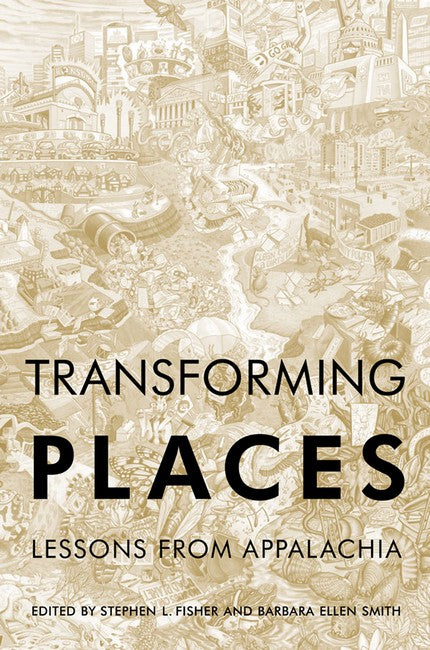Contributors are Fran Ansley, Yaira Andrea Arias Soto, Dwight B. Billings, M. Kathryn Brown, Jeannette Butterworth, Paul Castelloe, Aviva Chomsky, Dave Cooper, Walter Davis, Meredith Dean, Elizabeth C. Fine, Jenrose Fitzgerald, Doug Gamble, Nina Gregg, Edna Gulley, Molly Hemstreet, Mary Hufford, Ralph Hutchison, Donna Jones, Ann Kingsolver, Sue Ella Kobak, Jill Kriesky, Michael E. Maloney, Lisa Markowitz, Linda McKinney, Ladelle McWhorter, Marta Maria Miranda, Chad Montrie, Maureen Mullinax, Phillip J. Obermiller, Rebecca O'Doherty, Cassie Robinson Pfleger, Randal Pfleger, Anita Puckett, Katie Richards-Schuster, June Rostan, Rees Shearer, Daniel Swan, Joe Szakos, Betsy Taylor, Thomas E. Wagner, Craig White, and Ryan Wishart
Request Academic Copy
Please copy the ISBN for submitting review copy form
Description
''I cannot recall a book that has excited me more than Transforming Places. This work is a major step forward in the study of social change, our understanding of 'free spaces,' and local resistance - how people get power and how they can use it to get more.'' Richard A. Couto, editor of Political and Civic Leadership: A Reference Handbook ''Transforming Places addresses timely issues and tracks changes in political movements in Appalachia, assessing the devastating economic, social, and environmental costs amid hints of optimism for a more sustainable future. This work is significant for Appalachian studies and its overlapping disciplines but also will be useful outside of academia for agencies and organizations focused on sustainable development, strengthening community, and building alliances.'' Patricia D. Beaver, co-editor of Tales from Sacred Wind: Coming of Age in Appalachia ''The range of topics covered in this volume provides an exciting view of the new directions grassroots activism is taking in Appalachia: immigrants' rights, the history and dissolution of an organizing training program, collaborations between faith-based institutions and labor, coalitions that address farming and hunger, and a variety of analyses of recent activism against mountaintop removal. This is undoubtedly a major contribution to Appalachian studies.'' Mary K. Anglin, University of Kentucky

